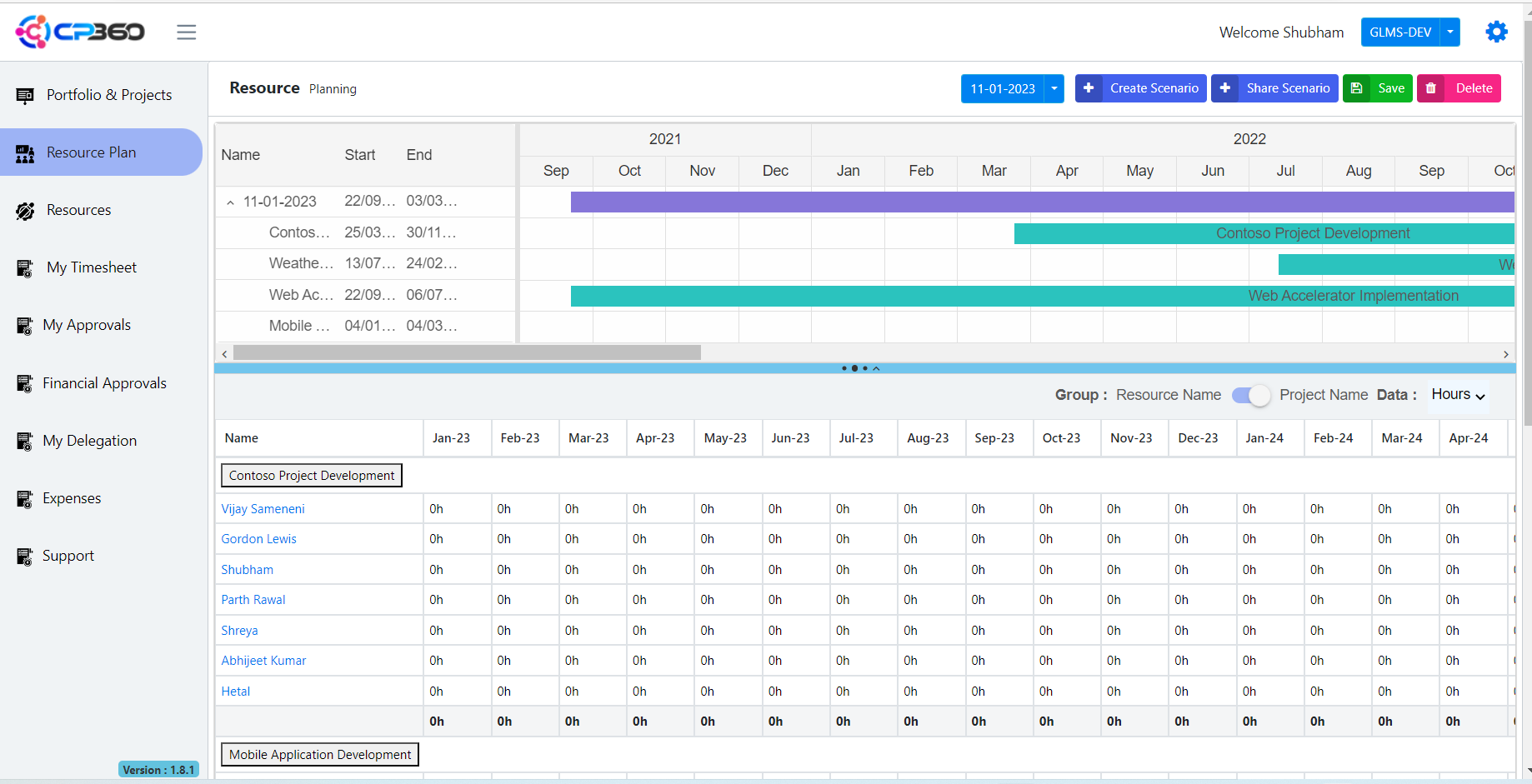Connect Plans 360 integrates all the required functionality with regards in project management at a single place, Resource planning is one of the main and key aspect of connect plans 360.
In laymen language, Resource planning refers to the process of identifying, organizing, and allocating resources (such as people, materials, equipment, and finances) to meet the needs of a project, program, or organization. Resource planning is a critical aspect of project management and involves identifying the resources needed to complete a project, estimating the quantity and cost of those resources, and then allocating them in a way that ensures the project is completed on time, within budget, and to the required quality standards.
Effective resource planning requires a thorough understanding of the project’s objectives, scope, and requirements, as well as an understanding of the resources available and their capacity to meet the project’s needs. Resource planning typically involves the creation of a resource plan or schedule, which outlines the resources required, their availability, and their allocation over the course of the project.
Resource planning can also involve forecasting future resource needs, identifying potential resource constraints, and developing contingency plans to address unexpected changes or challenges. By effectively managing resources, organizations can optimize their operations, reduce waste and inefficiencies, and improve their overall performance.

Things we should keep in mind while resource planning are:
-
- Understand the project requirements: Before allocating resources, it’s essential to understand the project objectives, scope, and requirements. This includes understanding the timeline, budget, deliverables, and quality standards.
- Identify the available resources: Determine the resources that are available, including people. This includes understanding their capacity, availability, and skill sets.
- Estimate resource needs: Based on the project requirements, estimate the quantity and type of resources that will be required, and determine the cost of acquiring or utilizing those resources.
- Allocate resources effectively: Allocate resources in a way that maximizes their utilization while minimizing waste and inefficiencies. This includes considering factors such as workload, availability, skill sets, and potential conflicts.
- Plan for contingencies: Develop contingency plans for unexpected changes or challenges that may arise during the project, such as resource shortages, delays, or budget overruns.
- Monitor and adjust resource allocation: Continuously monitor resource allocation and adjust plans as needed to ensure that the project stays on track and meets its objectives.
Why is resource planning done for future projects? And why is it so important?
Resource planning is focused on the future because it involves identifying, organizing, and allocating resources to meet the needs of upcoming projects or programs. The goal of resource planning is to ensure that the right resources are available at the right time to meet project objectives and goals.
Since projects and programs typically involve a significant investment of time, money, and resources, it’s essential to plan before hand and ensure that the resources needed are available when they are required. Resource planning is therefore done in advance of a project to ensure that the necessary resources can be secured, allocated, and utilized in an efficient and effective manner.
Effective resource planning requires careful forecasting and estimation of future needs based on project objectives, timelines, and requirements. This involves anticipating future demand for resources, identifying potential constraints or bottlenecks, and developing contingency plans to address unexpected changes or challenges.
By advanced planning and ensuring that resources are allocated effectively, organizations can optimize their operations, reduce waste and inefficiencies, and improve their overall performance. This is why resource planning is critical for future success and is a key component of project management.

